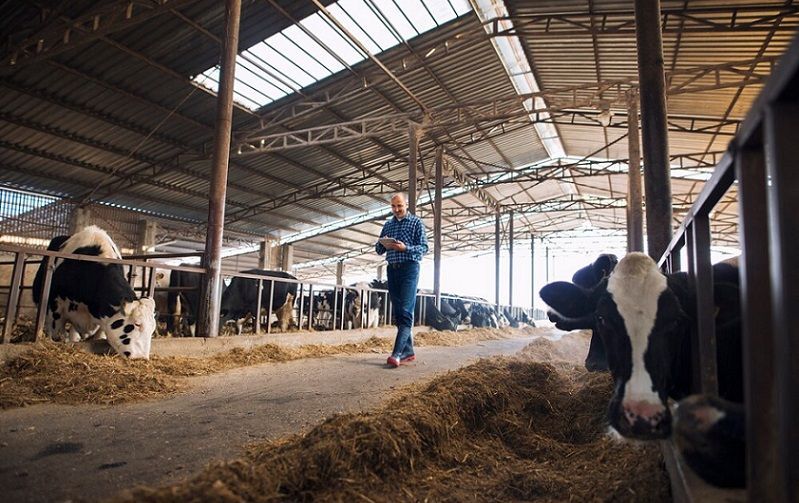Vaganovo Invests $175 Million in Russia's Largest Milk Farm in Kemerovo, Russia
Vaganovo, a leading Russian dairy company, has committed to investing 18 billion rubles (approximately US$175 million) into constructing what is set to be the largest milk farm in Russia, located in the Kemerovo region.

The project, already underway, aims to bolster Vaganovo's supply of raw milk significantly.
The new facility is designed to accommodate 18,000 cattle, including 8,200 milking cows, and is expected to produce 240 tonnes of milk daily, or about 82,000 tonnes annually. This production capacity will not only satisfy Vaganovo's needs but also provide potential surplus for other domestic and international buyers.
Roman Mayer, the General Director of Vaganovo, highlighted the strategic benefits of the location, noting its proximity to essential transport routes for feed procurement and the availability of sufficient land to grow feed. "The export potential, facilitated by the strategic location, is significant," Mayer stated.
Addressing the challenge of labor shortages, Mayer explained that the farm plans to employ between 400-500 workers, drawing from local communities and possibly recruiting from broader areas if needed. The construction is expected to complete within 2 to 2.5 years, spanning a 100-hectare main site, with an additional 20,000 hectares for feed cultivation.
Alexey Gruzdev, CEO of Streda Consulting, emphasized that labor would be the primary challenge due to a general shortage in the Russian economy. However, he noted the issue as "tense but solvable."
The governor of the Kemerovo region, Sergey Tsivilev, mentioned that despite the scale of this project, more capacity might be necessary to meet regional demands. Plans for a possible twin farm are already being discussed as part of a broader initiative to establish seven modern livestock complexes in the region by 2035, with the government offering various forms of state aid to facilitate these investments.
The new facility is designed to accommodate 18,000 cattle, including 8,200 milking cows, and is expected to produce 240 tonnes of milk daily, or about 82,000 tonnes annually. This production capacity will not only satisfy Vaganovo's needs but also provide potential surplus for other domestic and international buyers.
Roman Mayer, the General Director of Vaganovo, highlighted the strategic benefits of the location, noting its proximity to essential transport routes for feed procurement and the availability of sufficient land to grow feed. "The export potential, facilitated by the strategic location, is significant," Mayer stated.
Addressing the challenge of labor shortages, Mayer explained that the farm plans to employ between 400-500 workers, drawing from local communities and possibly recruiting from broader areas if needed. The construction is expected to complete within 2 to 2.5 years, spanning a 100-hectare main site, with an additional 20,000 hectares for feed cultivation.
Alexey Gruzdev, CEO of Streda Consulting, emphasized that labor would be the primary challenge due to a general shortage in the Russian economy. However, he noted the issue as "tense but solvable."
The governor of the Kemerovo region, Sergey Tsivilev, mentioned that despite the scale of this project, more capacity might be necessary to meet regional demands. Plans for a possible twin farm are already being discussed as part of a broader initiative to establish seven modern livestock complexes in the region by 2035, with the government offering various forms of state aid to facilitate these investments.
Key News of the Week











